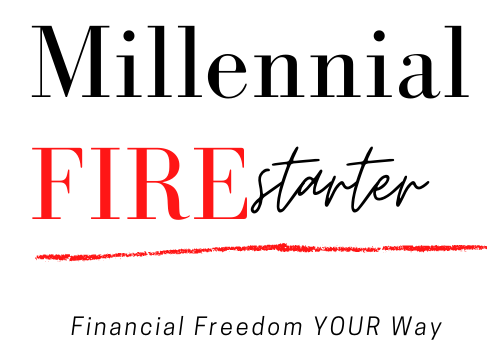
They say hindsight is 20/20, right? In my early 20s I would listen to people say what they regret doing in their early 20s and think, “I’m glad I didn’t do that!” It took me a while to build my own list of good and bad choices. I realized that you don’t always know the magnitude of what you are doing when you’re doing it. I can now see how all of the good and bad choices were interconnected by a lack of knowledge and understanding. These are some good and bad financial decisions that I made in my 20s.
I may earn a small commission for affiliate links in this post at no extra cost to you. Please read my disclaimer for more information.
Good Choices
Paid down Debt
My main goal when I first graduated college was to tackle my debt. For me debt felt like a dark cloud looming over my head and any potential job loss or unexpected expense could lead me in a catastrophic situation. My choice to save was based on fear of the unknown. I also didn’t know the different ways to build wealth at that point so my main priority was freeing up more of my income by paying off my debt. I was able to pay off my car and most of my student loans by the time I realized that I needed to make saving along with paying off debt a priority.
Created a rock solid budget
By building a budget I was able to see exactly how much money I have to spend in each category of my life. I am able to do projections because I know how much I can put aside for savings and investments. A budget is a roadmap for your financial decisions. If you don’t have a plan, you plan to fail. Having a budget was essential for me when I started to create real goals that I could measure and track. Having a budget also gives me a clear indication of what I can and can’t afford. Being able to look at my finances with this level of clarity brings more order to my life and gives me peace of mind.
I paid myself first
This is a lesson I wish I had learned sooner! There are so many statistics about how quickly money leaves our hands to pay bills after we receive a paycheck. Why not put yourself at the top of that list? Hoping that you have enough at the end of the month to save typically doesn’t work out too well. When I realized something needed to change, I set up a savings account and allocated money to it at the beginning of each month.
I’m not going to lie, the process was painful at first. Even though the money was still in my name it took some getting used to not having a cushion in by checking account. Feeling comfortable with less money in my checking account required a mindset shift. Since I didn’t need it for spending there was no reason for me to have immediate access to it. Having money in savings gave me more peace of mind and I before I knew I stopped missing the money. I started to look forward to putting the money away and watching it grow.
Built up an emergency fund
I can’t stress enough how much having an emergency fund has changed my life. Knowing that I have something to fall back on in case of a crisis gives me so much peace of mind. It took a lot of sacrifice and about 18 months to save up an amount I am comfortable with but I am proud of it. The great thing about saving for an emergency fund is once you have one, you can sit it and forget it. You can then work on your other goals with confidence. If you want tips on how to build an emergency fund, check out my post going into detail here.
—
Learned how to meal prep
After realizing how much of a dent eating out had on my budget, I needed to learn how to prepare delicious meals for myself. I don’t know about you, but a good meal makes my day. I started bringing home cooked meals that were similar to what I enjoyed in restaurants to work. This gives me some thing to look forward to. I can’t wait for lunchtime. I get the same benefit of eating a delicious meal, all while knowing exactly what is in my food and saving money in the process!
Opened retirement accounts
When I got my first job out of school, I enrolled in a retirement plan through my employer. My contributions and the matching contributions of my employer were a huge start in my wealth building journey. After I got comfortable with investing in my employer retirement account, I opened up a Roth Individual Retirement Account (IRA) were I chose my investments myself. The earlier you start saving for retirement, the more time your money has to grow. Even putting away a small amount each month can make a huge difference over time.
Built up my credit
I was originally hesitant to get a credit card in my early 20s. I used to only use a debit card or cash to pay for everything. Once I started educating myself on credit, I understood all of the benefits of having a credit card. Also, now that I understand how credit works I don’t automatically associate credit with debt. I see credit as another tool in my arsenal for a strong financial foundation.
—
Continuous learning
Graduating from college has not been the end of my educational journey! It’s amazing that once you get into the working world you realize how much there is to learn. I started taking extra classes for professional development and taking online courses. Both methods have been a great experience. The combination of formal and informal education have also shown me how many different ways we learn as people. This can be on the job education, learning through mentorship, books, or scrounging up what you can from the Internet! There is so much information at our fingertips and I am always looking for opportunities to learn something new.

Bad Choices
Skimped on saving
I waited longer than I should have to start saving and investing aggressively. I knew what I wanted after I graduated from college, but I wasn’t sure how I was going to get there. This is why I focused all of my energy on paying down debt in my early 20s. While this is not a bad thing, I regret not saving and investing while I aggressively paid off debt. Paying off debt may increase your net worth, but I doesn’t increase your assets. If I had invested in the stock market 5 years ago, I could have doubled my money by now! I was so focused on the interest that I was paying on my debt that I didn’t even think about the interest that I could be earning.
—
Dined out too much
Eating out was my biggest splurge when I was in my early 20s. I enjoyed fine dining, treating myself to lunch, and having Americanos on stressful days at work (aka often). I spent hundreds of dollars a month on dining and justified it by saying it was my only major discretionary expense. Once I realized the opportunity cost for spending all of that money on food every month, I quickly changed my habits.
I wasn’t intentional about budgeting
I called any extra money I had my slush fund. I knew I had enough to cover my bills and would spend my money on things that I wanted without tracking the exact costs. Anything that I had left over at the end of the month would just sit in my checking account unaccounted for. Since I didn’t have a plan for my money I wasn’t intentional about where it went I missed out on opportunities to have my money work for me. Had I done this I would be much farther along in my wealth building journey.
—
If you have made choices you regret in your 20s, don’t dwell on the past. Learn from your past choices and make a plan on how to move forward. What decisions have you made in your 20s that you regret?
Disclaimer: The content in this post is my opinion and should not be considered financial advice. I am not a financial expert or advisor. This content is for informational and educational purposes. For more details please visit the Disclaimer Page.












